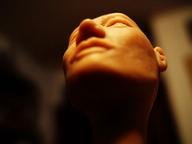Quiz Answer Key and Fun Facts
1. Which early Enlightenment philosopher, born in Ireland, wrote several important works and is considered one of the founders of the Scottish Enlightenment?
2. Which work by Adam Smith first gained him a reputation?
3. At which battle did Adam Ferguson, philosopher and historian gain the reputation that enabled him to become the principal chaplain of the 43rd Regiment of the Black Watch?
4. Which of these works was NOT written by David Hume?
5. For what work was James Burnett, Lord Monboddo justly famed?
6. Which of these was NOT a scientist/mathematician of the Scottish Enlightenment?
7. Which of these was NOT written by Sir Walter Scott (1771-1832)?
8. Who was James Watt's partner whose financial support was critical in the development of the steam engine?
9. What did Thomas Reid (1710-1796) do that influenced the course of philosophy and the Scottish Enlightenment?
10. Which of these buildings was NOT designed by the architect Robert Adam (1728-1792)?
Source: Author
mnbates
This quiz was reviewed by FunTrivia editor
bloomsby before going online.
Any errors found in FunTrivia content are routinely corrected through our feedback system.
